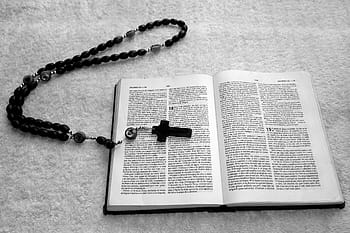Which of these three, do you think, proved neighbor to the man who fell among the robbers?” He said, “The one who showed mercy on him.” And Jesus said to him, “Go and do likewise.” Luke 10:36-37
Most of us are familiar with the Parable of the Good Samaritan. As we remember, a lawyer asked Jesus what were the two greatest commandment, to which He replied that we are to love God and love our neighbor as ourselves. The man asked Jesus to quantify who our neighbor is. And Jesus told the Parable of a Jewish man who was beaten by robbers and left by the side of the road to die. A priest and a Levite, two Jewish men, who should have been the FIRST ones to run to the man’s aid passed him by without stopping to help. The man who finally stopped was a Samaritan, the sworn enemy of the Jewish robbery victim. The Samaritan spent time (a day and a night) and money (two denarii, or two days’ wages) to make sure the man was cared for.
Then Jesus asked the lawyer, which man acted like the neighbor to the man who had been beaten and robbed. The man answered, “The one who showed mercy on him.” (Luke 10: 37) And Jesus told him to go and to the same. The meaning of this parable is that our neighbor is everyone, even our enemy. The Samaritan showed mercy, kindness, and sacrifice for an enemy.
Let’s look at this with an even more practical definition of neighbor. Most people, when they hear the word neighbor, think of the person who lives next door to them. By extension, our neighbor is the person who is “residing” closest to us at this moment. At work, our neighbor might be the person whose desk is ten feet away from ours. If we are teachers, our neighbors are the students in a particular class at a particular moment in time. For the doctor, the neighbor is the patient he or she is seeing at a particular moment, for the waiter or waitress, the neighbor is the customer, and for the customer in the restaurant, the neighbor is the person you are eating with, as well as the waiter or waitress. Our neighbor can be the driver next to us on the road, or the teller at the bank, the clerk at the grocery store, on the fan in the seat next to us at the ballgame. Our neighbor might be someone we know well or someone we don’t know at all. Our neighbor might be someone we see every day or someone we will see once and never see again. Our neighbor is everyone, but at any particular moment in time, our neighbor is the person who is physically closest to us.
Encouragement should not just be limited to those we know, or those we know well. We aren’t only supposed to build up our friends. And we shouldn’t only hold people in high esteem who are authority figures. Encouragement, building others up, and holding others in high esteem are things we should be giving our neighbor, whoever is next to us at a given moment. If we love our “neighbors” as we love ourselves, then we are constantly putting ourselves in their shoes. Do we like when people notice us? When they thank us? When they encourage us? Of course, we all like these things. To love our neighbor as ourselves means to do for the neighbor as we hope to have done for ourselves. Loving our neighbor includes encouraging, building up and holding in high esteem.
How often do we thank the waiter for excellent service, or the teller at the bank? How often do we fail to? How often do we hold a door open for someone, or even just simply smile? We are so preoccupied on our phones and with ourselves we often forget to hold our neighbor in any kind of regard. Sadly, our society in some corners has become so unsafe, that many times we think twice about even acknowledging our neighbor for fear they will do us harm.
Saint Paul reinforces Christ’s command to love our neighbor when he tells us to esteem highly in love those who are among us, whether they are working with us, working for us, or working over us. Since everyone needs encouragement, we should look for opportunities to encourage all of our neighbors, which may mean something as simple as a smile, holding the door open, or even saying “Good morning.” Thanking someone who has served us in a restaurant or bank is something we should all do. I make a point of thanking all people who wear the uniform of the United States Military or police officers. They need encouragement as well. In a world where people are feeling increasingly isolated, lonely and frustrated, a little encouragement is like a drink from a desert oasis, a refreshing change.
Lord, I know that You gave us a commandment to love our neighbors as we love ourselves. Help me to see everyone person who comes into my path today as a neighbor and help me to love each neighbor, and to offer encouragement to as many neighbors as possible. Bring someone into my life today who needs encouragement, whether I know this or not, and allow me to be an instrument of encouragement, so that they walk away from our encounter feeling more positive about their day. Amen.
Look for opportunities to encourage your neighbors today, the people who are occupying the spaces closest to you today!
The Revised Standard Version of the Bible is copyrighted 1946, 1952, 1971, and 1973 by the Division of Christian Education of the National Council of the Churches of Christ in the U.S.A. and used by permission. From the Online Chapel of the Greek Orthodox Archdiocese of America.




